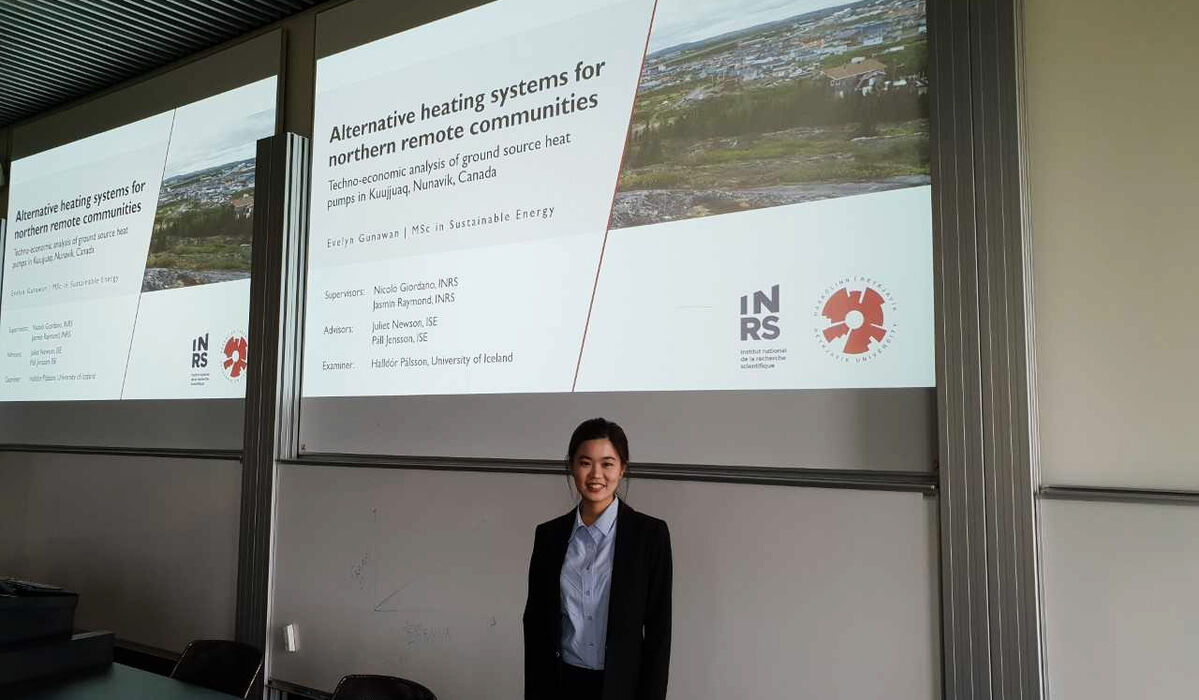MSc Thesis: Alternative heating systems for northern remote communities: Techno-economic analysis of ground-source heat pumps in Kuujjuaq, Nunavik, Canada
Evelyn Gunawan successfully defends her master's thesis
REYKJAVIK, July 3 – After conducting her studies, Evelyn Gunawan successfully defended her thesis where she analyzed the possibility of using geothermal energy as a heating alternative to the diesel furnaces currently being used to meet residential heating demand in the capital of Nunavik. Evelyn's work was supervised by Juliet Newson, Páll Jensson both from Reykjavik University, Jasmin Raymond, and Nicolò Giordano both from INRS.

The study area of Kuujjuaq is located in northern Quebec in Canada. Kuujjuaq is considered the regional capital of Nunavik and is home to 14 Inuit villages. The area is subject to cold, subarctic conditions. Because Kuujjuaq is remote and located far from other parts of Canada, it is not connected to the transmission power system and there are no future plans for connection. There is a high heating demand, and electricity use, in general, is increasing. Currently, off-grid diesel power generators are used for electricity generation. Diesel is costly because shipping occurs only once a year and has an adverse environmental impact.
Evelyn suggests the G.POT method, developed by Casasso and Sethi (2016) as a heating alternative. She rendered maps of the shallow geothermal potential in Kuujjuaq, the largest village in Nunavik showing relatively high potential. The expected production ranged between 5.8 MWh/year and 22.9 MWh/year for borehole heat exchanger lengths of 100 m to 300 m.
Evelyn also evaluated the economic viability of the project by conducting 50-year life-cycle cost analyses of the suggested geothermal systems. She found that compression GSHP with electricity derived from solar photovoltaic panels were the most economical option, with costs as low as CAD$0.15/kWh. To put this price into perspective the current solution of heating homes with diesel furnaces costs CAD$0.21/kWh
To read more about the heating potential of low-temperature geothermal click here.
Congratulations Evelyn on an excellent thesis!
